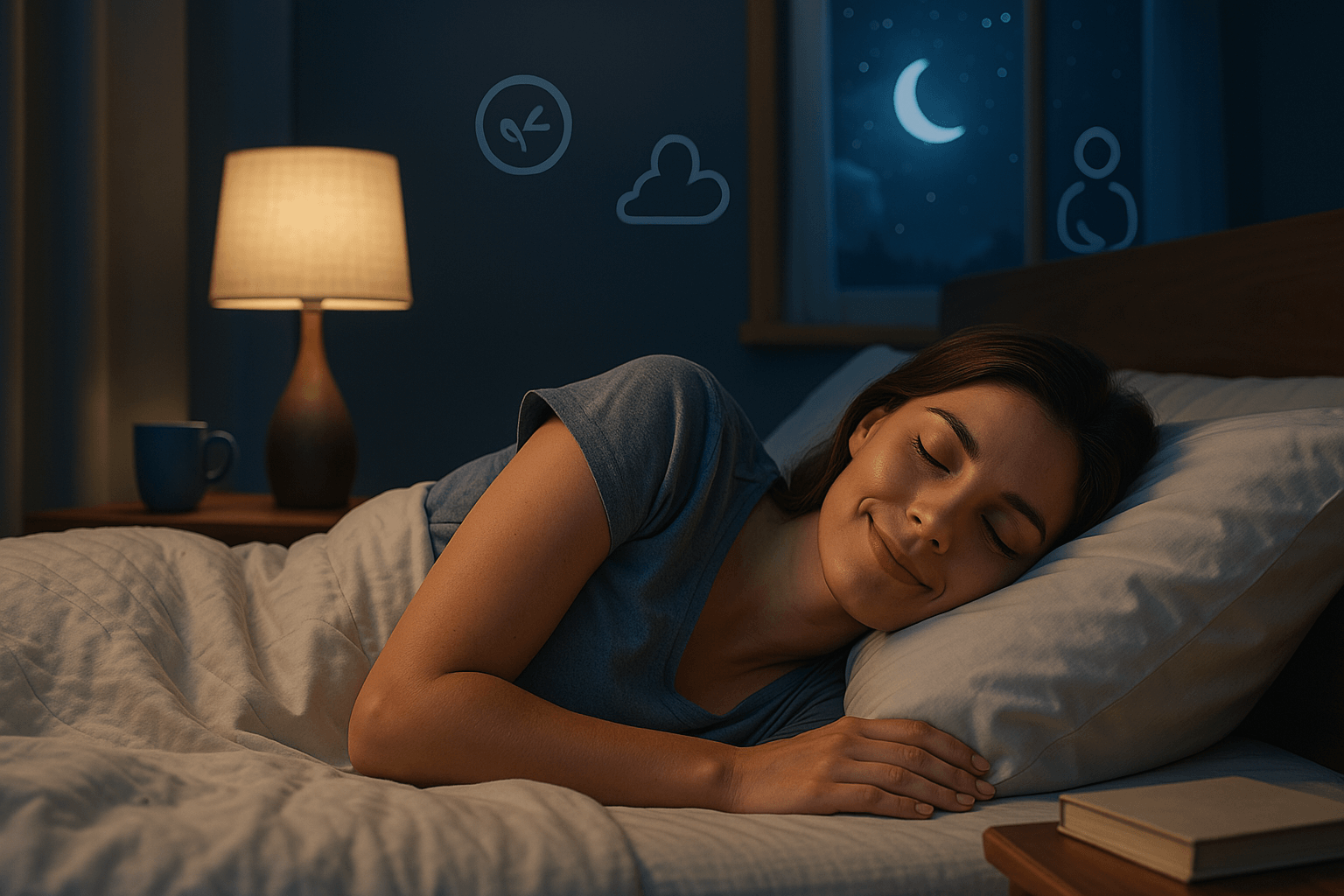A healthy lifestyle starts with a good night’s sleep. While many people focus on diet and exercise, sleep is just as essential for physical and mental well-being. When we sleep well, our bodies recover, our minds become clearer, and we feel more energized throughout the day. Unfortunately, millions of people struggle with falling asleep or staying asleep due to stress, screen time, or poor daily habits.
If you’re looking to improve your sleep quality naturally, here are seven practical and healthy lifestyle tips that can help you fall asleep faster and wake up refreshed.
1. Stick to a Regular Sleep Schedule
Your body has a natural internal clock, also known as the circadian rhythm. Going to bed and waking up at the same time every day—even on weekends—can help regulate this rhythm. When your body gets used to a consistent schedule, it starts to feel sleepy and alert at the right times, making it easier to fall asleep without effort.
Tip: Try to get at least 7–9 hours of sleep every night. Set a bedtime alarm if necessary to remind you to wind down.
2. Create a Relaxing Nighttime Routine
Establishing a calming routine before bed signals your brain that it’s time to sleep. Avoid stressful activities and create a peaceful environment. You might consider reading, stretching, taking a warm shower, or practicing meditation.
Tip: Avoid stimulating activities like checking emails, intense workouts, or watching action-packed TV shows right before bed.
3. Limit Screen Time Before Bed
The blue light emitted by phones, tablets, and computers can interfere with your body’s melatonin production—a hormone that promotes sleep. Ideally, you should stop using screens at least an hour before going to bed.
Tip: If you must use your phone in the evening, turn on “night mode” or use blue light blocking glasses to reduce the impact.
4. Watch Your Diet and Caffeine Intake
Heavy meals, caffeine, and alcohol can disrupt your sleep. Try to avoid eating large meals at least 2–3 hours before bedtime. Also, be mindful of coffee and energy drinks in the afternoon.
Tip: Instead of caffeine, opt for calming herbal teas in the evening such as chamomile, peppermint, or lavender.
5. Make Your Bedroom a Sleep-Friendly Space
Your bedroom should be a sanctuary for rest. Keep it cool, dark, and quiet. Consider blackout curtains, white noise machines, or even a sleep mask to block out unwanted light and noise.
Tip: Invest in a comfortable mattress and pillows. A supportive bed can make a huge difference in how you feel when you wake up.
6. Stay Active—But Not Right Before Bed
Regular physical activity improves sleep quality by reducing stress and promoting natural tiredness. However, working out too late can leave you feeling energized instead of relaxed.
Tip: Try to finish any vigorous exercise at least 3 hours before bedtime. Morning or early afternoon workouts are best for sleep.
7. Manage Stress with Mindfulness
Stress and anxiety are two of the biggest obstacles to restful sleep. Practicing mindfulness techniques like deep breathing, journaling, or guided meditation can calm your mind and prepare your body for sleep.
Tip: Write down your worries earlier in the evening instead of carrying them to bed. A calm mind rests easier.
In Conclusion
Improving your sleep is one of the best things you can do for your health. By following these simple yet powerful tips, you can build a routine that supports both a healthy lifestyle and restorative sleep. Consistency is key—healthy habits take time, but the long-term benefits are worth it.
Wake up feeling energized. Sleep soundly tonight, live better tomorrow.

